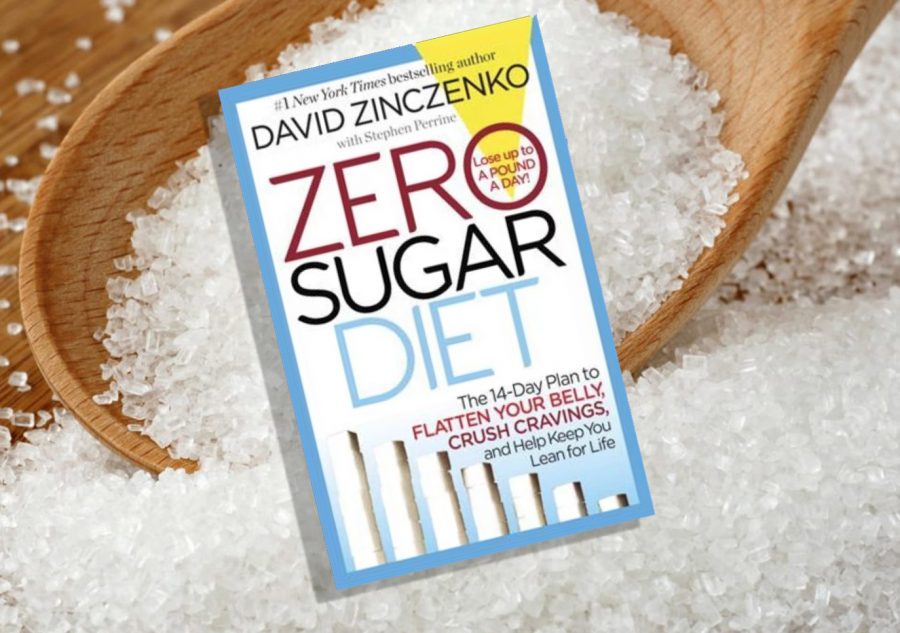A Sweet Tooth’s Guide to Ditching Sugar
Now that the holiday season is upon us, it is time for everyone to start loosening their belts and giving up on their diets until New Year’s rolls around again. Or at least that’s always my game plan. Who can blame me when I am constantly surrounded by copious amounts of candy and delicious homemade meals? Well it turns out my sweet tooth isn’t so cute.
As a country, we consume too much sugar. Three times the recommended amount actually, according to the American Heart Association, who recommends 38 grams of sugar a day for men and 25 grams for women. Despite these warnings, the average American consumes 82 grams every day.
How is it possible that we all race right past the recommended amount of sugar? Well, it is not actually that hard to understand considering a 12-ounce can of Coca Cola has 39 grams of sugar–more than anyone is supposed to have in one day.
So what is all this sugar doing to us? Some of the most serious health risks associated with a high-sugar diet include higher risks of obesity, type 2 diabetes, poor cardiovascular health and teeth erosion. Sounds delicious right? Obviously something has to change, so I wanted to see if I – a self- proclaimed sugar addict – could go 14 days without added, artificial or substitute sugars by embarking on David Zinczenko’s “Zero Sugar Diet: The 14-Day Plan to Flatten Your Belly, Crush Cravings, and Help Keep You Lean for Life.”
His book details the ridiculous nature of the food industry, and its obsession with added sugars. It then outlines the diet with recipes and guidelines for success. Basically, the diet cuts added sugars, while allowing for natural sugars (such as fruits, veggies and dairy) and foods with an equal or greater ratio of fiber to sugar. After the 14 days, the book claims that I will feel more energized, burn fat more easily, feel less hungry, have a flatter stomach, decrease my risk for diabetes and improve my muscle mass and health.
To be honest, it was easier than I expected. During the first week, I noticed that I wasn’t craving sugar like I normally do, I had fewer headaches and stomach aches and I did not have the same aversion to dairy as I usually do. The only cons I experienced were that I did not notice an increase in energy – which was the main reason I did the diet–and that I was a little crabby by the end of each day.
By the second week, I was a little less gungho about the whole thing. My irritability skyrocketed. I still was not feeling energized, and everything I was eating felt boring and repetitive. While I still was not exactly craving sugar, I was definitely getting frustrated about all the foods I could not eat because of unnecessary added sugars.
I survived 14 and a half days without sugar, breaking my previous record by about 14 days and 11 hours. My stomach was definitely flatter, I felt generally lighter and I was really proud of my accomplishment. I honestly did not think I was going to make it, especially since I had to endure two family birthday parties during the 14 days, but miraculously I did.
The more food I had to steer away from, however, the more I understood that all the blame couldn’t rest on me. The U.S. Federal Food and
Drug Administration did not even begin including the daily nutritional value for sugar until this year, and added sugars are purposefully hard to find. I was frustrated to no end when I went grocery shopping, but it taught me the important lesson to read everything.
If you want to join me on the quest to find a healthy relationship with sugar, I do have a few helpful tips. The main reason I was able to make it through the diet was because my mom was doing it with me. Finding a brave accountability buddy to do the zero sugar diet with makes it a lot easier–misery loves company and all that. If you find yourself in an emergency sugar craving, try turning to natural sugars like fruit to dull the itch. Finally, if you find yourself an irritable mess like I did, try exercising. It may be the last thing your cranky, sugar-deprived body wants to do, but exercise does release endorphins that might make you feel a little better.
This cold-turkey styled diet is not for everyone. It’s hard, and it feels much longer than 14 days, but it did make a huge difference in my perspective on the food industry to the point where I have chosen to brave the diet every month for seven to 14 days. I think it is important that we understand what we are putting into our bodies, because if we want anything about the food industry to change we need to be informed.
Your donation will support the student journalists of Saint Louis University.




